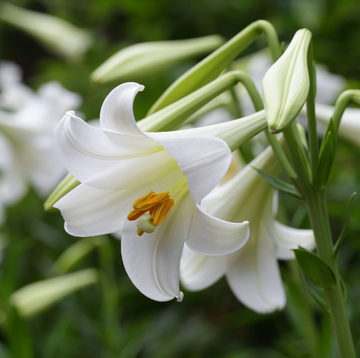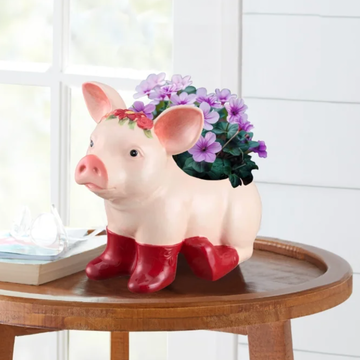If you’re like most gardeners, you’ve probably found an old packet of seeds tucked away in a drawer and wondered: “Are these still good to plant?” Whether you're getting ready to plant some beautiful spring flowers, testing new garden layout ideas, or just trying to use up leftover seeds before buying new ones, it's important to remember that seeds don’t last forever. But don’t stress—they don’t expire immediately, either. With a little care, you can make them last longer and give them the best chance to sprout! Dive into how to store seeds, test if they’re still good, and make sure they’re ready to grow.
Do seeds expire?
The shelf life of seeds varies depending on the type of seed and how well it's been stored. While some seeds can last a long time, others won’t remain viable for very long.
“Seeds do eventually expire or lose their ability to germinate," says Michael Clarke, the founder of Yardwork and a landscape architect and horticulturalist. "This will depend on the type of plant, how they were harvested, and how they are stored. Hardier seeds from beans or peas can last for several years, while delicate seeds from onions or carrots might only be viable for one to two years.”
So, if you find a packet that’s a few seasons old, don’t immediately toss it. Just remember that some seeds have a shorter shelf life than others, and even the hardiest ones will eventually lose their ability to grow.
How can I test if my old seeds are still good to plant?
You're probably wondering how to tell if those seeds are still good before you waste your time planting them. Clarke suggests this simple at-home test to check their viability:
Take about 10 seeds from the packet and place them on a damp paper towel. Fold the towel over the seeds and keep it in a warm, dark place. Be sure to check it every few days to ensure the towel stays moist. After about 7-10 days, you’ll know if the seeds are still good to go. If seven or more sprout, your seeds are still in prime condition. But if fewer than three sprout, it’s probably time to say goodbye.
What’s the best way to store seeds to make them last longer?
The key to keeping your seeds viable for as long as possible is proper storage. By choosing the right conditions, you can help ensure they stay in great shape until you're ready to plant them.
“Seeds do best when stored in a cool, dry, and dark environment," Clarke says. "It's a good idea to keep them in airtight containers in a place with low humidity, like a basement or refrigerator, but make sure they are fully dry before storing them away.”
Labeling your seed packets with the date you purchased or saved them can also be helpful for keeping track of their viability. And don’t forget to check your storage area every now and then to make sure it’s not too warm or humid, which could affect the seeds' longevity.
Do different types of seeds need different storage conditions?
While all seeds need a cool, dry place to thrive, different seeds have different tolerance levels when it comes to temperature and humidity.
“Cool-season seeds from lettuce, cabbage, and spinach can tolerate a bit more humidity, while warm-season seeds from tomatoes, peppers, and beans require drier conditions," Clarke explains. "Carrot, parsley, and onion seeds tend to have shorter shelf lives, so they should be stored more carefully, while herb seeds often do better in a cooler, darker spot. Flower seeds can be slightly more tolerant of humidity.”
The takeaway
Seeds don’t expire like milk, but they do have a limited window in which they’ll grow. With the right care and attention, you can stretch the life of your seeds for a few extra seasons. Always remember to check your old packets with a germination test, store them in a cool, dry place, and be mindful of the unique needs of each type of seed. That way, you’ll have your garden flourishing, no matter what year it is. Happy planting!

Tierney McAfee is a freelance writer and Country Living and The Pioneer Woman contributor who covers entertainment, holiday & entertaining, food & drinks, design ideas, DIY, and more.














